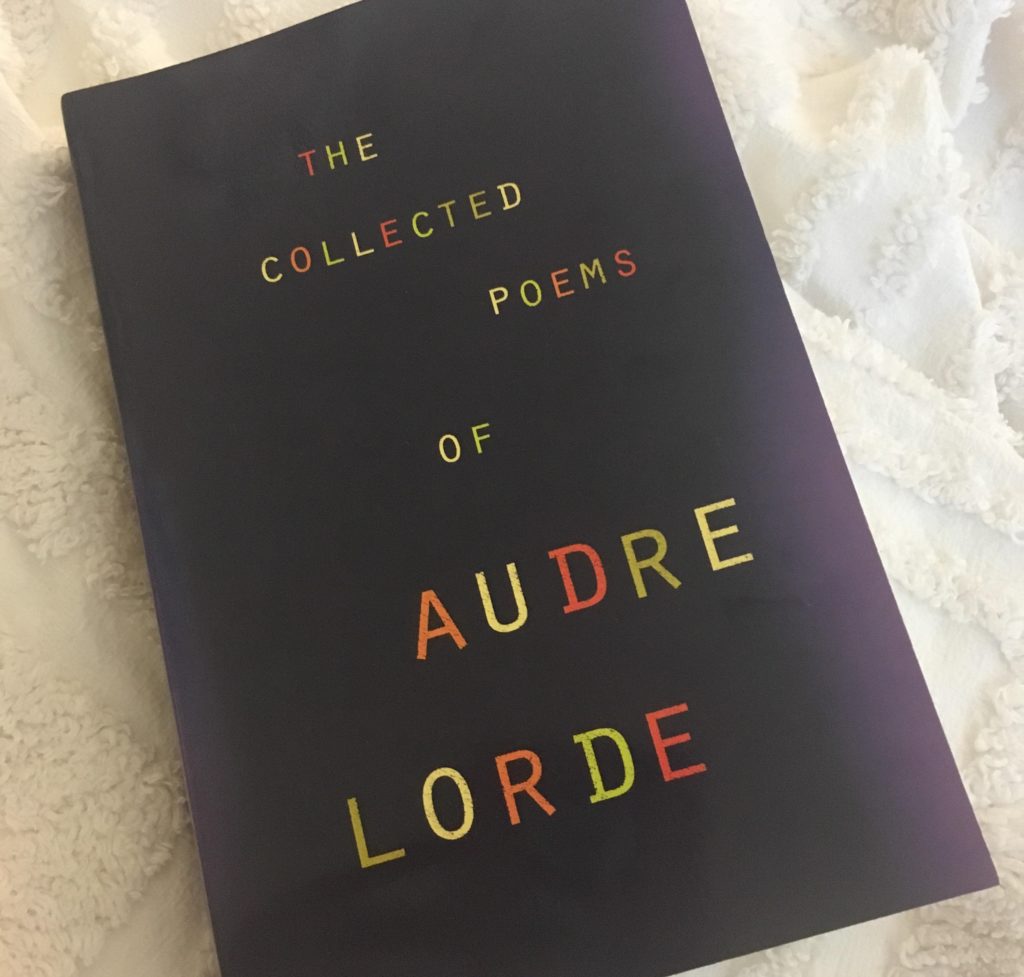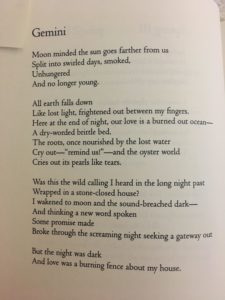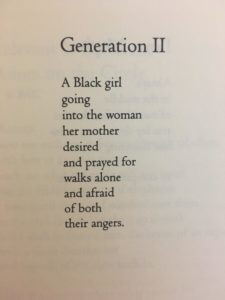Poetry is Still Not a Luxury

Audre Lorde’s Sister Outsider was first published as a collective piece in 1984, and was the first work of hers that I encountered. I bought the book my Sophomore year of undergrad for my Feminist Theories class, and her words began to take root in my core and in my activism. However, I didn’t encounter her poetry until my Senior year, and that’s when she really began to color my lens of the world.
I knew her other work well, having devoured it eagerly for class, and I thought I understood her voice. Her effortless word flow and interwoven activism and politics had been shaping my perspective and writing for a couple years at that point, and I foolishly considered myself well versed in Lorde. How little I, a poet myself, actually knew before purchasing The Collected Poems of Audre Lorde for my Advanced Poetry workshop.

If my first dance with her words planted roots in me, this one set me on fire. These poems possessed all of the strength and identity from her essays with a fluidity that sang; Audre Lorde made music, and I could do nothing but listen. The smoking swirled days and the oyster world’s pearled tears of “Gemini” felt like reading about a dream I once had, and the loves burning fence made my own heart ache. An equal mix of melancholy and passion brands this poem in my mind. The beautiful simplicity of “Generation II” speaks to growing up as a black girl, meeting her own desires and the desires of the women before her, and the intersection of angers.

Her words aren’t just beautiful to listen to: they last. Her perspective as a black, lesbian feminist on the patriarchy, homophobia, motherhood, sisterhood, and change still applies. Her assertion that poetry is a vital part of women’s lives, that it is a form of survival, still rings true. “I speak here of poetry as a revelatory distillation of experience, not the sterile word play that, too often, the white fathers distorted the word poetry to mean–in order to cover a desperate wish for imagination without insight” (Lorde, Sister Outsider 37). As someone who has long used poetry not merely as a coping mechanism or a way to understand my world, but also as a means for survival during times I felt I couldn’t, she gives words to a feeling I never quite could explain. My poetry has never been sterile, despite the many attempts of English teachers over the years, and her assertion lended me validation I never knew I needed so desperately.
I find her words more necessary than ever in our world, and in my life; as I progress in my graduate studies, my poetry, and my existence as a queer and trans fem, her poetry continues to harden my backbone and burn in my belly. Learning to maneuver through spaces of immense privilege that I myself don’t often possess personally is a special kind of exhausting, and I lean on her work more than ever to remind myself of what I already know: if there is not space for myself or others at the table, I will build a new one. The personal is indeed political, and so is poetry.
“For women, then, poetry is not a luxury. It is a vital necessity of our existence. It forms the quality of the light within which we predicate our hopes and dreams toward survival and change, first made into language, then into idea, then into more tangible action. Poetry is the way we help give name to the nameless so it can be thought. The farthest horizons of our hopes and fears are cobbled by our poems, carved from the rock experiences of our daily lives” (Lorde, 37). Lorde continues to teach me about my fire, my inner poetry, and my absolute right to existence every day. Carve, rest, repeat.
—Annamae Sax
Share